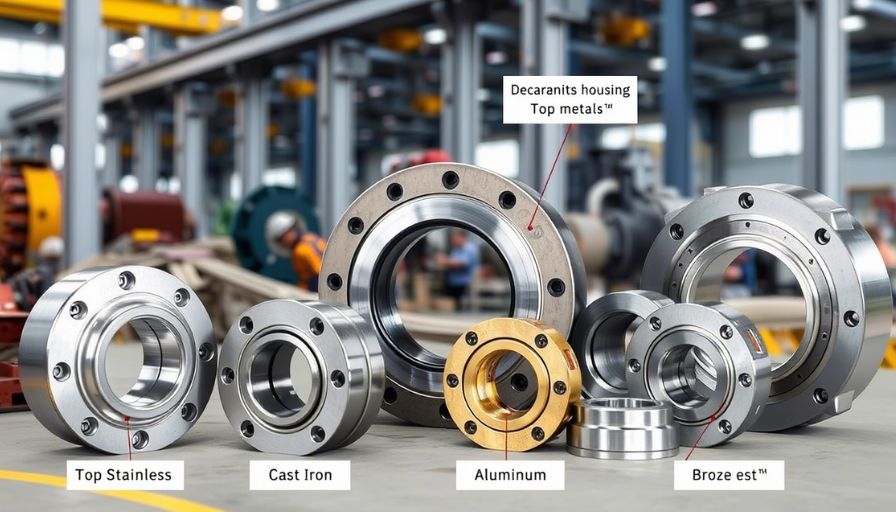What metals give strength to mechanical components? Which ones ensure durability under extreme pressure? The right material choice can make the difference between smooth operation and unexpected failure. Let’s explore the top four metals that offer proven mechanical advantages for demanding environments.
1. Trusted, Classic Cast Iron
Cast iron remains a top pick due to its strength and resistance to wear. In applications where you need a bearing housing, its rigid structure offers consistent support and low vibration. It handles compressive forces well, making it ideal for industrial machinery. One key benefit is how it absorbs shocks without deforming. The graphite content enhances lubrication, lowering maintenance needs. This metal also performs well in both dry and lubricated systems. It’s cost-effective and widely available. In stable settings with steady loads, cast iron proves highly dependable.
2. Strong and Versatile Steel
Steel offers a strong balance of hardness and ductility. Used frequently in structural applications, it also performs well in rotating assemblies, such as bearing supports. Its ability to withstand both tension and compression makes it versatile. Heat-treated variants, like carbon steel or alloy steel, boost fatigue strength. This is critical where constant motion and pressure are involved.
With proper coatings or surface treatments, steel can resist rust and pitting. That’s important in wet or chemically active settings. It’s reliable across many different industries. Hence, many engineers choose steel when a balance of cost, strength, and resilience is needed.
3. Lightweight Yet Tough Aluminium
Aluminium is valued for being light yet relatively strong. It helps reduce overall equipment weight without losing essential durability. It’s especially useful in areas where movement and speed are key. Corrosion resistance is a bonus, especially when anodised or alloyed.
Key features include:
- Excellent strength-to-weight ratio
- Natural corrosion resistance
- Efficient in applications needing reduced mass
- Suitable for lower-load environments
- Often used in transport and light manufacturing
In addition, aluminium cools quickly and resists rust. This can extend the part’s life in humid or marine environments. With the right surface treatment, it maintains its condition over time.
4. Bronze for Reducing Friction
This non-ferrous metal performs quietly in rotating systems. Its self-lubricating properties cut down on maintenance. It also resists corrosion from water and air. These features make it a reliable option in damp or outdoor applications. Wear resistance remains one of its strongest assets.
Phosphor bronze improves fatigue resistance. It also stands up to deformation over long periods. Bronze’s lifespan often balances the price. In rotating equipment and marine use, bronze proves its worth daily.
Choosing a Reliable Supplier
Quality material is only part of the solution. Who provides it also matters. A trusted supplier ensures consistent material properties, proper certifications, and accurate machining. This avoids delays and errors during assembly. Support, inventory availability, and delivery speed should be considered. Long-term supply relationships often result in better pricing and priority service.
Before placing an order, it’s wise to review certifications, material testing, and past client reviews. Any reputable source should clearly list specifications and standards. Look for flexibility in order sizes and lead times. Many suppliers also offer in-house testing or pre-shipment inspection. These checks improve confidence in the product’s performance. Strong supplier relationships add real value beyond the part itself.
Each metal type brings specific strengths to bearing housing and mechanical design. From heavy-duty industrial settings to light machinery, the right material supports efficient performance and long service life. Choosing wisely, backed by a reliable supplier, ensures stability in every bearing application. The right combination of metal and supplier improves durability and reduces long-term maintenance costs.
